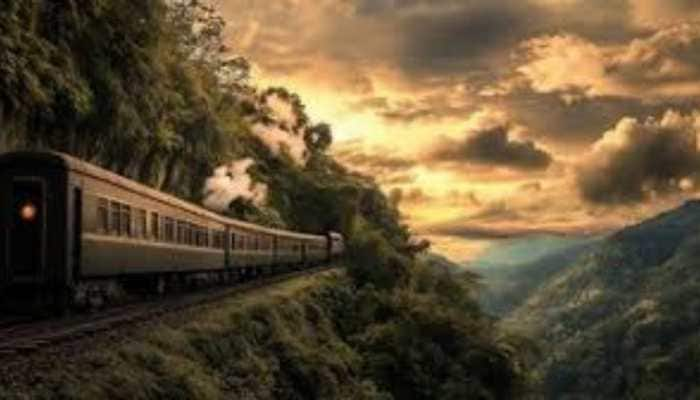Mainstreaming the Northeast: What might work, and what might not
To what extent the Northeastern states succeed will depend on several factors. It is, however, indubitable that the direction is right.
Trending Photos
)
As a region, North East has suffered neglect for a very long time. Till recently, every politician talked about the region but it played little role in national politics. The media took note only when some militant outfit did something nasty. For people at large, it was someplace out there which (lamentably) figured in discussions when the family member of some government servant of got posted there. The Narendra Modi government wants to change this. The jury is out whether change could happen, though some activity is there. The NITI Forum for North East, which held its first meeting at Agartala, Tripura, on April 10, was one such event.
NITI Aayog Vice Chairman Rajiv Kumar announced five missions for the development of North Eastern states: horticulture, tourism, food processing, bamboo-based handicrafts, and medium-scale industries to stimulate the Make in North-East programme. The need for focus on the North Eastern region (NER) can scarcely be overemphasized. As Kumar pointed out, in the 1950s the region had the highest per capita income in India. At present, five out of the eight states have the per capita net state domestic product or NSDP below the national average of Rs 86,454. Only Sikkim, Arunachal Pradesh, and Mizoram fare better than the national average.
Which is a crying shame, for the region is rich in natural resources and sparse in population. According to Niti Aayog estimates, it has huge natural resources including coal, limestone, natural gas, and uranium. The region can boast of almost one-third water resources of the country, 40 per cent of the hydro-electricity potential, and a long international boundary which is supposed to complement with the Act East Policy. It has over 65 per cent of green cover, much above the national average of 21.54 per cent.
But constraints are also numerous. Apart from the problems related to security, land transfer to entrepreneurs, and marketing of NER products, there is the issue of connectivity. In fact, Union Minister of State (Independent Charge) for Development of North Eastern Region (DoNER) Jitendra Singh pointed out that the intra-region connectivity is a bigger problem than that of inter-region one.
For the Bharatiya Janata Party, connecting the NER with the rest of the country has as much been an economic imperative as it has been of symbolic significance, given the party's emphasis on nationalism. In this context, it is important to note that DoNER came into being under when Atal Bihari Vajpayee was the prime minister. Under the Modi dispensation, a great deal of political capital was invested in the region, which yielded decent electoral dividends. This also explains the new impetus to economic development.
Thankfully, the approach in the NER seems more substantive for this region than other parts of the country. For one, there don't seem to be many saffron cowboys over there; further, there is not much stress on symbolic measures, though they are not absent. For example, the new Tripura Chief Minister, Biplab Kumar Deb, heading the first BJP government in the state, wants to rename the Agartala Airport as the Maharaja Bir Bikram Manikya Kishore Airport to honour "the visionary Maharaja of Tripura till May 1947." He also wants to replace the Left-propaganda textbooks with NCERT ones. What really consume him and his government, however, are such subjects are tourism, connectivity, and job creation.
"We need support from the Union government for improving the quantity and quality of flights, introducing charter flights, cargo carriers and ground infrastructure such as cold storages," he said at the Forum, adding that night landing facilities need immediate attention. He also favours the Agartala Airport to be upgraded as an international one, becoming a hub of international travel, particularly to Dhaka, Sylhet, Chittagong, and south east Asian countries.
Deb also demands the development of waterways, tourism, better implementation of the Accelerated Irrigation Benefit Programme, and removal of restriction on export from Tripura to Bangladesh.
It is heartening to note that the focus in the NER is on economic development. To what extent the North Eastern states succeed will depend on several factors like support from the Centre, competence of politicians and bureaucrats concerned, and the response of civil society. It is, however, indubitable that the direction is right.
(Note: The author was part of a media team visiting Tripura. The trip was sponsored by the state government.)
(Ravi Shanker Kapoor is a journalist and author. He has spent around 25 years in the media. As a freelance journalist, Kapoor has written for a number of leading publications. He has written four books on Indian politics and its associated institutions.)
(Disclaimer: The opinions expressed above are the personal views of the author and do not reflect the views of ZMCL.)
Stay informed on all the latest news, real-time breaking news updates, and follow all the important headlines in india news and world News on Zee News.
Live Tv







)
)
)
)
)
)
)
)
)
)

